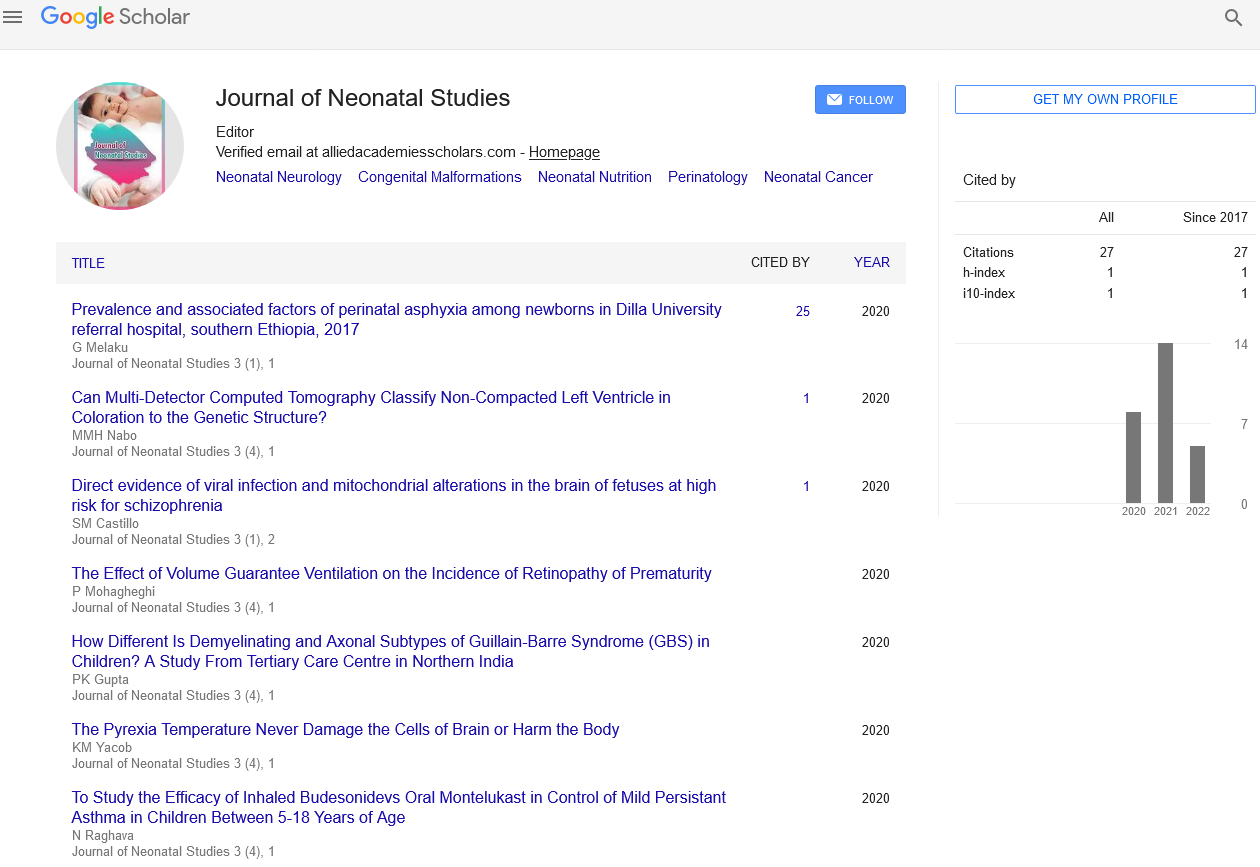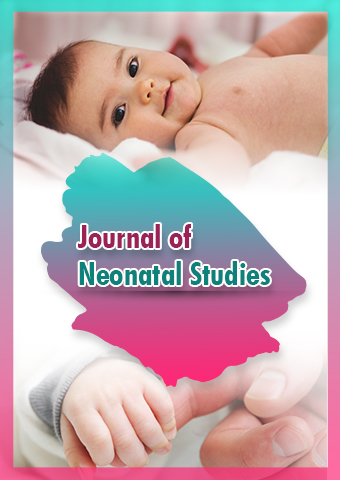Perspective - Journal of Neonatal Studies (2024) Volume 7, Issue 2
Understanding Birth and Neonatal Care: Navigating the Journey into Parenthood
- Corresponding Author:
- Ethan Carter
Department of Neonatal Medicine, Imperial College London, United Kingdom
E-mail: e.c.carter@asklepios.com
Received: 01-Mar-2024, Manuscript No. JNS-24-130012; Editor assigned: 04-Mar-2024, PreQC No. JNS-24-130012 (PQ); Reviewed: 18-Mar-2024, QC No. JNS-24-130012; Revised: 02-Apr-2024, Manuscript No. JNS-24-130012 (R); Published: 09-Apr-2024, DOI: 10.37532/JNS.2024.7(2).209-210
Introduction
The birth of a child marks one of the most significant and transformative moments in the lives of parents and families. From the anticipation of pregnancy to the miracle of childbirth and the delicate early days of infancy, the journey into parenthood is filled with wonder, joy, and profound emotions. In this comprehensive guide, we explore the intricate process of birth and the critical aspects of neonatal care, shedding light on the physical, emotional, and medical dimensions of welcoming a newborn into the world.
Description
The miracle of birth
Anticipation and preparation: The journey of pregnancy is a remarkable experience, characterized by anticipation, excitement, and preparation for the arrival of a new life. From the moment of conception, parents embark on a journey of nurturing and protecting their unborn child, guided by a blend of emotions ranging from awe and wonder to apprehension and uncertainty.
Prenatal care: Prenatal care plays a pivotal role in ensuring the health and well-being of both mother and baby throughout pregnancy. Regular prenatal check-ups, screenings, and diagnostic tests enable healthcare providers to monitor fetal development, detect any potential complications, and provide timely interventions to optimize maternal and neonatal outcomes.
The miracle of birth: The moment of childbirth is a profound and awe-inspiring event, marking the culmination of nine months of anticipation and preparation. Whether through natural childbirth or cesarean delivery, the arrival of a newborn into the world is a testament to the resilience, strength, and beauty of the human body.
Neonatal care: Nurturing new life
The neonatal period: The neonatal period, defined as the first 28 days of life, represents a critical stage in a newborn’s development, characterized by rapid growth, adaptation to extrauterine life, and vulnerability to various health challenges. During this period, newborns require specialized care and attention to support their transition from the womb to the outside world.
Newborn screening: Newborn screening is a vital component of neonatal care, aimed at detecting genetic, metabolic, and congenital conditions that may not be apparent at birth. Through a series of blood tests, hearing screenings, and physical examinations, healthcare providers can identify infants at risk of certain disorders and initiate early interventions to prevent or mitigate potential health complications.
Feeding and nutrition: Nutrition plays a crucial role in promoting the health and development of newborns during the neonatal period. Whether through breastfeeding, formula feeding, or a combination of both, ensuring adequate nutrition is essential for supporting growth, immune function, and overall well-being. Lactation support, feeding assessments, and nutritional counseling are integral components of neonatal care, empowering parents to provide optimal nourishment for their newborns.
Bonding and attachment: The early days of infancy are characterized by a profound sense of bonding and attachment between parents and their newborns. Skin-to-skin contact, kangaroo care, and responsive caregiving facilitate the formation of secure attachments, fostering emotional security, trust, and bonding between parents and their infants. Establishing a nurturing and supportive environment promotes the development of healthy attachment relationships, laying the foundation for lifelong emotional well-being.
Challenges and considerations
Neonatal complications: Despite advances in medical care, some newborns may experience complications or health challenges during the neonatal period. Prematurity, low birth weight, respiratory distress, jaundice, and infections are among the common issues that newborns may encounter, requiring prompt assessment, diagnosis, and treatment by healthcare providers.
Support for parents: Caring for a newborn can be both rewarding and overwhelming, especially for first-time parents navigating the uncertainties and demands of parenthood. Access to support services, resources, and community networks can provide invaluable assistance and guidance to parents as they adjust to the joys and challenges of caring for their newborns.
Advocacy and empowerment: Empowering parents to become advocates for their newborns’ health and well-being is essential for promoting positive outcomes and ensuring access to quality care. Providing information, education, and support empowers parents to make informed decisions, communicate effectively with healthcare providers, and actively participate in their newborns’ care journey.
Conclusion
The journey into parenthood is a profound and transformative experience, marked by the miracle of birth, the joys of bonding, and the challenges of caring for a newborn. From the anticipation of pregnancy to the delicate early days of infancy, each stage of the journey presents unique opportunities for growth, learning, and connection.
By embracing the wonder of childbirth and the complexities of neonatal care, parents and families can navigate the journey into parenthood with confidence, compassion, and resilience. Through supportive relationships, access to resources, and a commitment to nurturing new life, we can create a world where every newborn receives the love, care, and support they need to thrive.
As we celebrate the miracle of birth and the precious gift of new life, let us cherish each moment, embrace each challenge, and honor the journey of parenthood with gratitude, humility, and love.

